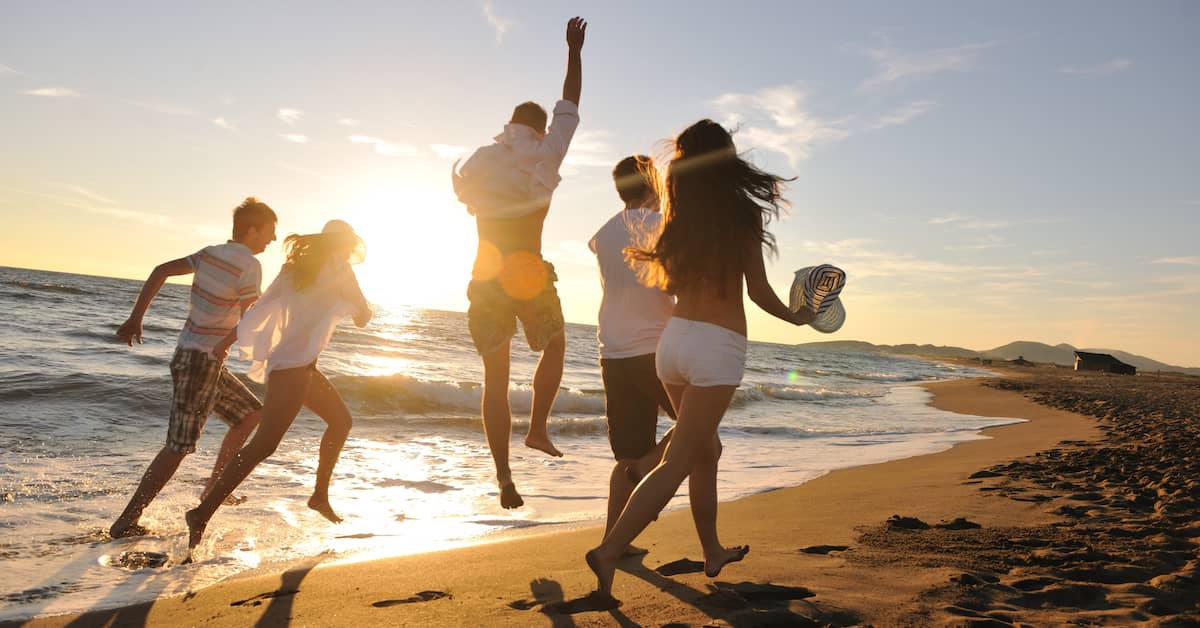
Scientists have found that constantly keeping your nose to the grindstone, and hardly ever taking a vacation, can considerably shorten your life expectancy.
Of course, merely taking more vacations won’t be a panacea for all your health issues. And there are actually a few health dangers that can occur during your vacation (which I’ll describe in a moment). But if you go about your holidays the right way, taking time off can be a big boost to your well-being and your longevity.
Several studies have indicated that not taking enough time off from your job and the daily grind can make you more vulnerable to health problems and lower your longevity.
Greater Risk of Deadly Heart Attack
In the original Framingham heart study, the long-running research that has focused on the heart health of people living in Framingham, Massachusetts, researchers found that, for women who were employed outside the home, “infrequent vacations” significantly increased the risk of heart trouble. Specifically, the women who did not take a vacation had a higher incidence of deadly heart attack or other fatal heart problems during the 20 years covered by the scientific analysis.Another study, this one in Finland, investigated the effects of vacations on longevity, and found that skipping vacations can lead to health problems. In this research, which focused on the health and lifestyle habits of about 1,200 men taking part in the Helsinki Businessmen’s Study, taking shorter and fewer vacations was linked to “excess” deaths during the 40-year-study.
In men who were advised on how to lower the risk of heart problems, taking three weeks or less in annual vacation time increased the risk of dying by 37 percent between the years 1974 and 2004.
Now that you understand why it’s important to take regular vacations, let’s look into how to reap the greatest health benefits from your time away and avoid the many dangers of vacationing.
Avoid Holiday Heart Syndrome
Along with the research on the benefits of taking more time off, researchers have also uncovered ways to make your vacations healthier and safer.For example, a wide range of studies show that during the time away from work many people succumb to what’s called the “holiday heart syndrome” – also known as alcohol-induced atrial arrhythmia. What this means is that many folks tend to binge drink excessively when they’re taking time off from work and develop serious heart arrythmias that can lead to heart attacks and strokes. This happens so often that a great many studies are devoted to the subject.
Consequently, that’s the first rule of healthy vacationing – go easy on the drinking!
The next group of rules to keep in mind were put together by doctors and researchers at Dr. P. Phillips Hospital in Orlando, Florida, where the emergency room is constantly filled with tourists who have suffered mishaps while vacationing at Disneyworld and other local attractions. These researchers recommend you:
- Cancel your travel plans if you’re already sick or injured before your vacation starts. If you’re ill when your vacation is supposed to begin, just say home. Make your time off a staycation. According to emergency room physician Steven Corbett, M.D., “I understand that we only get so many days off throughout the year and we spend a lot of time planning our vacations, but I see people every day who think they can manage their conditions only to wind up in the ER, which ruins the trip for everyone involved.”
- Bring your medical information with you. If you have a chronic condition, keep your important health information on your person. You can usually store it on your phone. List your allergies, prescriptions and other things that are important about your condition. Dr. Corbett also says that somebody with you should know how to unlock your phone in case of an emergency so your data can be accessed.
- Refill your prescriptions before your vacation starts. Refills may be hard to get at your vacation destination. And pack your medications in your carry-on bag. Otherwise, if your luggage gets lost, it’s bye-bye to your prescriptions.
- Tell your fellow travelers immediately if you begin to feel unwell. Dr. Corbett warns that not speaking up immediately about a health problem “can be very dangerous, especially if someone is having symptoms like chest pains or dizziness that can be a sign of something serious. So, if something doesn’t feel right, speak up immediately.”
- Consider taking out travel insurance. Your health insurance might not cover health costs if you go abroad. And even when you merely travel to another state, you might run into health insurance red tape that will complicate covering your health expenses.
- Enjoy your vacation in moderation. The final rule, suggested by Dr. Corbett and others, is to enjoy your vacation in moderation. Be careful when eating exotic food you’ve never tried before. Don’t overdo activities in high heat and humidity. Always stay well-hydrated. And be careful not to overeat. According to a study at the University of Georgia’s College of Family and Consumer Sciences, Americans going on one- to three- week vacations add several pounds to their waistlines.
My Takeaway
When you’re on vacation, remember that the purpose of a vacation is to relieve stress. So, don’t be in constant touch with your workplace. Added to that, keep in mind that being away may help you get ahead at your job. A survey by the Harvard Business Review shows that folks who took less than ten vacation days in a year only had a 34.6 percent chance of getting a raise or bonus in a three-year period.And the people who took more than ten days off? They had a 65.4 percent chance of receiving a raise or bonus.
So, start making those get-away plans. Your heart and your bank account will thank you.
